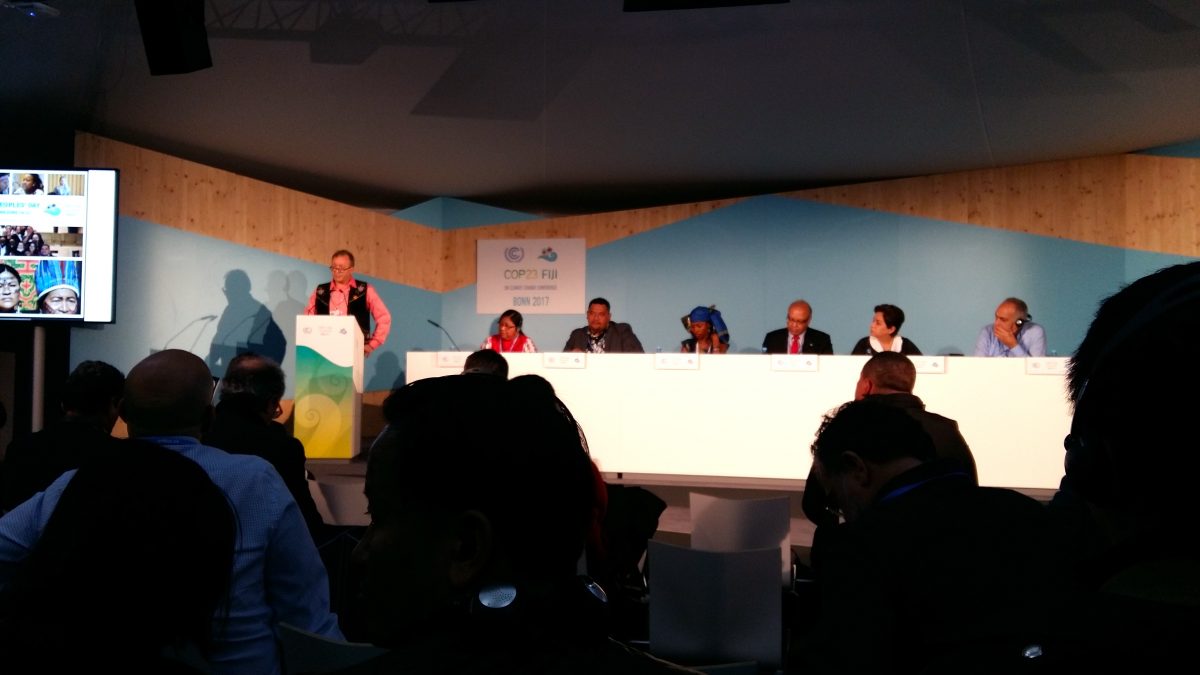 I’m Verna. I bring to the team my passion for facilitating international cooperation. At COP23, I’m focusing on two things: 1) progress on operationalizing the Local Communities and Indigenous Peoples’ Platform (LCIP), which was established by the Paris Agreement; and 2) supporting Canada-East Asia collaboration by engaging with regional representatives.
I’m Verna. I bring to the team my passion for facilitating international cooperation. At COP23, I’m focusing on two things: 1) progress on operationalizing the Local Communities and Indigenous Peoples’ Platform (LCIP), which was established by the Paris Agreement; and 2) supporting Canada-East Asia collaboration by engaging with regional representatives.
While it may sound like everything is under control on my end, things only started to fall into place toward the end of day two. Since COP23 is a huge event that covers heaps of issues, it is hard to hone in on a focus topic, find relevant people who are interested in advancing it, and balance competing priorities. Thanks to the meetings I participated in and the people that I’ve met over the last two days, I fortunately have figured out how exactly I can pursue my two priorities.
On day one, I gained an understanding of the lay of the land: what meetings were important in deepening my understanding of the issues, where I could meet like-minded people, and how I could advance the areas I was interested in. For example, the daily Climate Action Network Canada briefing provided a wider overview of Canada’s status on various parts of the Paris Agreement, and is where I connected with others who wanted to follow the same issues as me.
On day two, I hunkered down on focus area one, the LCIP, which was greatly facilitated by the fact it was Indigenous Peoples’ Day at COP23. The events I attended as part of this thematic day were filled with extraordinary excitement and energy, for it was a historic moment – this was the first ever Indigenous Peoples’ Day at COP. There was a sense of celebration, especially from many participants who were from the International Indigenous Peoples’ Forum on Climate Change (IIPFCC), who have been working for years to advance recognition of the important role Indigenous Peoples play in climate action. Events and discussion naturally revolved around how this could be in achieved, in large part by a COP23 decision on the operationalization of the LCIP.
The next key step in integrating Indigenous Peoples (including their perspectives, traditional knowledge and active participation) into the UN climate change framework is to implement this LCIP. In 2015, the LCIP platform was introduced by the Paris Agreement. In 2016, at COP22, countries decided on the process by which they would establish the platform. Consequently, what remains for COP23 is to launch the platform with an outline of what will look like, based on discussions that have taken place since COP22.
I also had the opportunity to pursue focus area two, collaboration with East Asia, on day 2. Jeffrey, another delegation member, set up a lunch meeting with the China Youth Climate Action Network where we shared delegation goals, interest areas, and activities.
With these connections and a good understanding of the COP23 landscape, I’m eager to dive deeper into these focus areas throughout the rest of the conference. Looking forward to providing positive updates later on how that goes!
